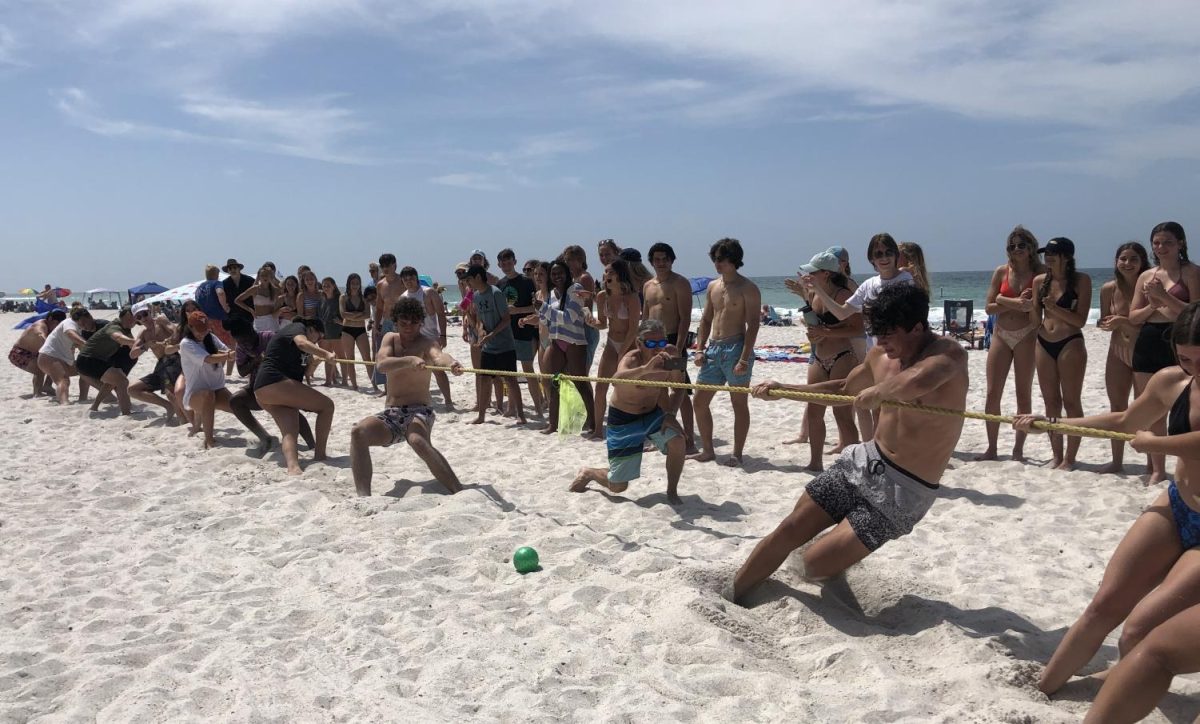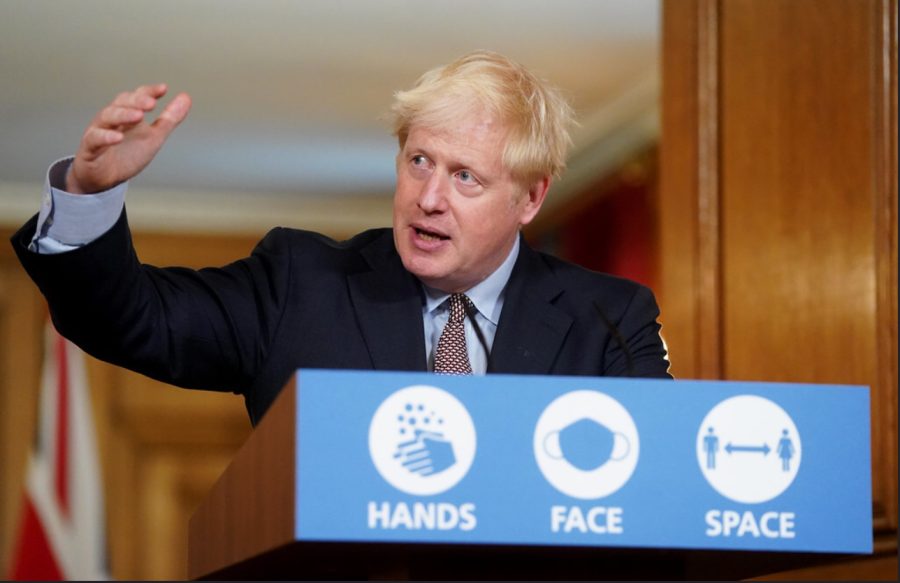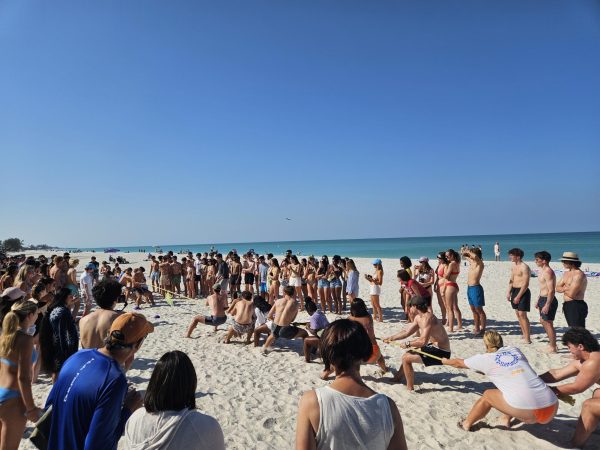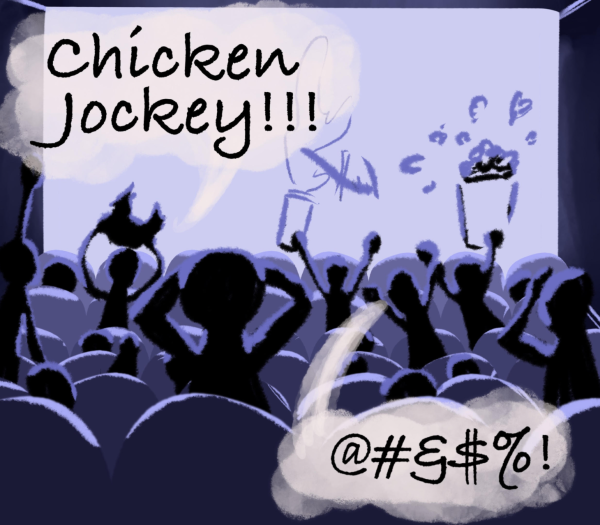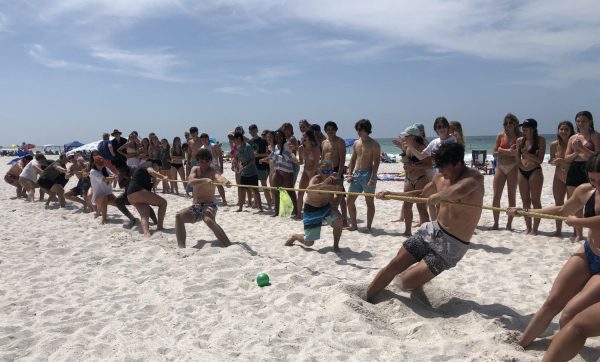Rules for thee but not for me: Boris Johnson and ‘Party Gate’
The debate over the Prime Minister’s parties have people wondering: will his own party take him down?
Boris Johnson announcing Coronavirus guidelines; the same rules he allegedly breached multiple times.
February 4, 2022
In these chaotic past two years, Americans have been, say, distracted by challenges at home. But if we take a moment to look up from our own situation and gaze across the pond at the political and social uproar gripping the United Kingdom, I think we can learn a valuable lesson about leadership and public trust. Leaders around the world are watching this controversy over Boris Johnson’s conspicuous gatherings and have learned a rude reminder that a public office is a position of power and with it comes great responsibilities. But we too should examine this issue not only to learn about the expectations of public trust and leadership but to become more engaged, cognizant citizens of our own country. So, let’s take a look at Boris Johnson and ‘Partygate’.
On the 23rd of March, 2020, Boris Johnson, Prime Minister of the United Kingdom announced a nationwide lockdown of the United Kingdom, urging his people to stay home to fight the virus. At the same time, while his government ordered Brits to only meet with one other person outside, he, his fiancé and 17 other members of his staff were meeting out in the garden of 10 Downing Street for cheese and wine.
10 Downing Street is not just the home of the Prime Minister, it’s also their office, located in the heart of London, surrounded by the vehicles of state: the Foreign office is across the street and the Chancellor of the Exchequer is located next door. Downing Street isn’t just a home or an office building, it’s a symbol of the British government. And over the next year, there would be 14 other gatherings in the rooms or in the backyard of 10 Downing Street and, if they took place as alleged, would all have been violations of the rules written by the government in those very same rooms.
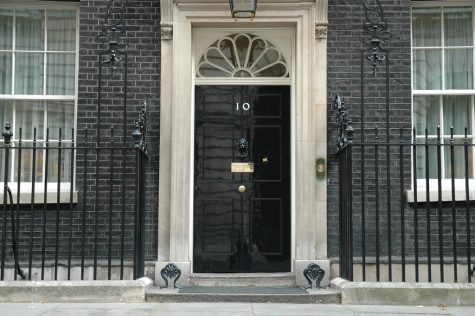
The question that may determine the future of the United Kingdom remains: what was the Prime Minister’s involvement with these parties? Johnson certainly attended several of the parties including a “Bring Your Own Booze” event on May 20th, 2020, but Johnson has denied knowing these events were against the rules.
But former Chief Advisor to Johnson, Dominic Cummings, disagrees. He noted on his blog that when he learned about the May 20th party, he objected and decried the party as something that “seemed to be against the rules and should not happen.” He says he was ignored by Johnson’s staff who hosted the party anyway.
Responding to these new revelations about impropriety at Downing Street, Boris Johnson has apologized to the House of Commons, the lower house of the UK legislature, and has tasked second Permanent Secretary Susan Gray to investigate.
However, even before Monday’s release of Sue Gray’s report, Johnson’s political rivals did not waste the opportunity to take down their political opponent. Keir Starmer, the leader of the Opposition and Labour Party leader as well as Johnson’s opponents in the Scottish National party and the Liberal Democrats have called for Johnson to resign as Prime Minister.
In the UK’s parliamentary system, a Prime Minister can only govern if they have the support of a majority of members in the House of Commons. With Johnson’s Conservatives holding an 80 seat majority, Johnson’s problems come not from Starmer’s Labour Party but from his own Conservatives. After Johnson’s landslide election victory in the 2019 General Election, many in the ruling Conservative Party were unwilling to challenge Johnson. But according to Conservative party rules, if 15% of Conservatives members of Parliament write letters of no confidence to the chairman of the Conservative Party’s 1922 Committee, Sir Graham Brady, an internal leadership race will occur.
While the number of Members who have sent their letters to the chairman is a closely held secret, (Brady even commented during Theresa May’s premiership, he didn’t even tell his wife how many letters had been sent calling for her removal) the controversy has been boiling for several weeks and the threshold still hasn’t been met.
That might change pretty soon, however. On Monday, January 31, Susan Gray, released her much anticipated report on the gatherings. While Gray left the issue of criminal culpability to investigation by the Metropolitan Police, she did note that there were “ failures of leadership and judgment by different parts of [the Prime Minister and his offices] at different times.Furthermore she criticized the government’s inappropriate consumption of alcohol in the workplace and mentioned the poor management of the increasingly complex Prime Minister’s office.
It’s not yet clear how much the report will change the mindset of the British people. Many in Britain are outraged, indignant over the Prime Minister and his government’s hypocrisy of ordering people to stay at home while they themselves partied. And they are willing to express that anger at the polls. Since the Partygate story broke, Johnson’s party has lost his polling lead and lost a crucial by-election in North Shropshire. If Johnson leads the Conservatives in the next election, they could be facing a landslide defeat.
But as vaccines make more and more lawmakers and citizens around the world feel comfortable about easing COVID restrictions, politicians are looking to the aftermath of COVID and plotting the path forward. But the question remains will politicians who broke rules during the pandemic be the ones navigating the course as we exit it? For the United States, that seems to be yes. Governor of California, Gavin Newsom, dominated an attempt to recall him last year over his attendance at a maskless party and Speaker of the House Nancy Pelosi was re-elected to the speakership even after receiving a haircut during California’s lockdown. Partisan loyalties make most Americans criticize the other party’s coronavirus policies and not the personal conduct of our leaders.
We must always ask ourselves what makes our leaders fit to lead us and scrutinize their hypocrisy when they mislead us. When we make ourselves aware, it aids us in our own pursuits of leadership and integrity, even within the walls of the school. The new year will come with many more lessons about leadership and politics— will you be paying attention?



